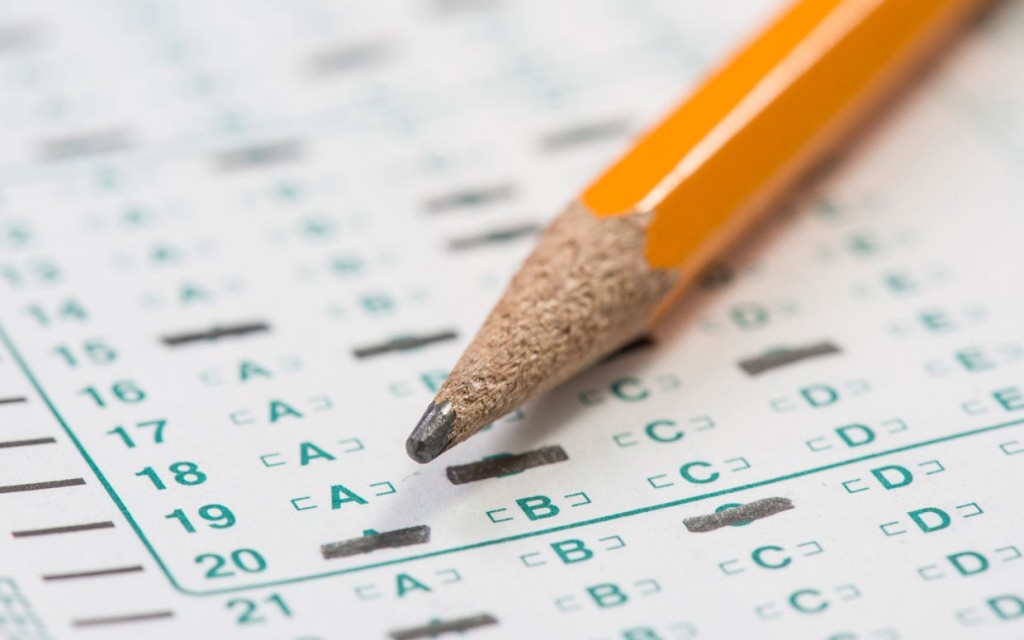The College Series: Standardized Aptitude Test or Socio-Economic Test?
Hours of valuable “prep,” or test taking cheats, create a far-from-level playing field.
In theory, the idea of using standardized testing as a major factor in determining whether or not a student should be admitted into a university is a good idea, but that’s just the problem; it’s a good idea in theory. Realistically, there are some huge flaws with America’s favorite standardized test, the SAT. The goal of the SAT is to provide a general idea of a student’s intelligence level by testing him or her in reading, mathematics, and writing, although the writing portion will become optional in upcoming years.
The biggest issue with this exam is that scores are often reliant on the socioeconomic status of the test taker rather than the student’s intelligence. Students who plan on taking the test numerous times often turn to test prep centers or books in the hope that such resources will boost their scores. The problem is, they do. Teens that come from families with more money receive increased preparation for the test, and subsequently score better than those who come from less financially well-off homes. Does this mean that the students who are more financially stable are also more intelligent? Not necessarily. While it might be argued that these test prep sources are fair because they are available to everyone, this just isn’t the case. Money is just as much of a barrier to education as academic preparation. Thankfully, some colleges have decided to combat this unfair monetary advantage by forcing prospective students to submit scores from each sitting of the SAT, therefore allowing admissions officers to see if you got that 2250 just because you took the exam four times. In fact, by taking the SAT numerous times following prep classes you may be showing colleges more than just the fact that your initial scores were not too great, you may be indicating to them that you have wealth.
Another problem with the SAT is the potential for cheating that comes with it. An inattentive proctor just may be the reason you score fifty points lower than someone who is in another room. Being that every SAT booklet has the sections organized in a different order, it is nearly impossible for a proctor to make sure every kid is where he should be, but generally a proctor who looks over your shoulder every so often is enough to scare students away from cheating. Yet, time and time again kids report that they were able to flip back to a section that they had already completed in order to check over a problem one extra time, or solve a question that they did not have time for originally. The idea of gaining extra points and not being caught is certainly enticing, but the bottom line is that it is not fair to the other test takers who are abiding by the rules.
Another common form of cheating on the SAT is centered around the SAT II subject tests. Students are allotted an hour to complete each test, and may take up to three tests in one sitting. On numerous occasions I have heard stories of students who opt to take all three tests, but realistically only take two. These students fill in random answers for the third test under the assumption that they will just omit the score on that exam when it comes to applying to college. The hour that was intended to be used for the third exam is now split between the first two exams, giving these students an unfair chunk of extra time to go over their answers and finish taking the test.
But before you panic because you are one of the rare, honest human beings left in the world who isn’t cheating on the SAT or receiving extra prep, take a deep breath. The SAT is just a qualifier, and in general the jump in scores students make between their first and second time taking the test is not great enough to drastically alter their chances of receiving admittance into any given college. Unless you are one of the few kids who either did extremely well or extremely poorly on the SAT, it really is not going to make or break you in the grand scheme of things. This idea is well-worded by one undergraduate admissions officer at Harvard University who explained, “Generally speaking, the SAT is not very important…it helps us calibrate a student’s grades.”
My best advice is to just relax. If you are a weak test taker, throw your focus into the areas of your application that highlight your strengths. The most important thing I have learned throughout the college application process is that grades are not nearly as important as everyone thinks they are. They are only a glimpse of the whole picture.


